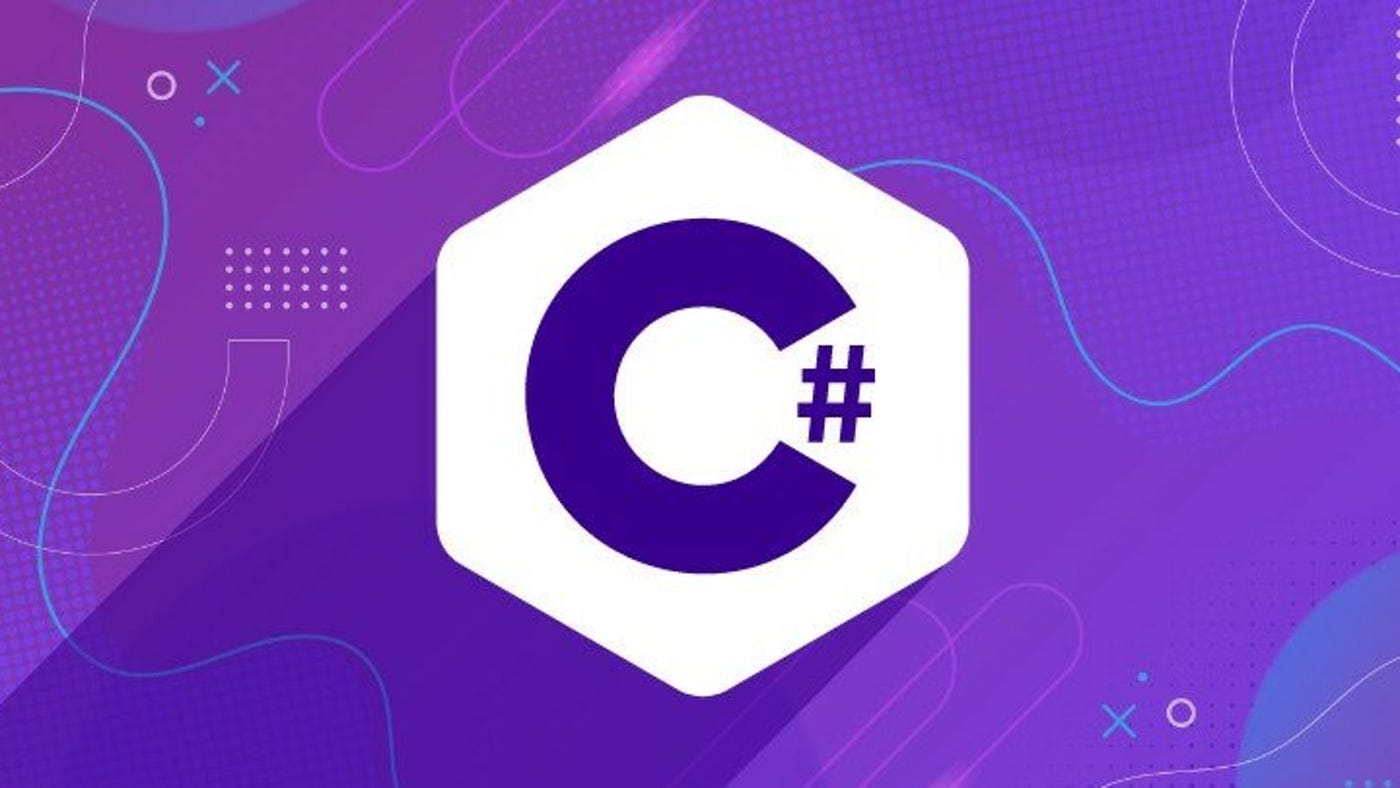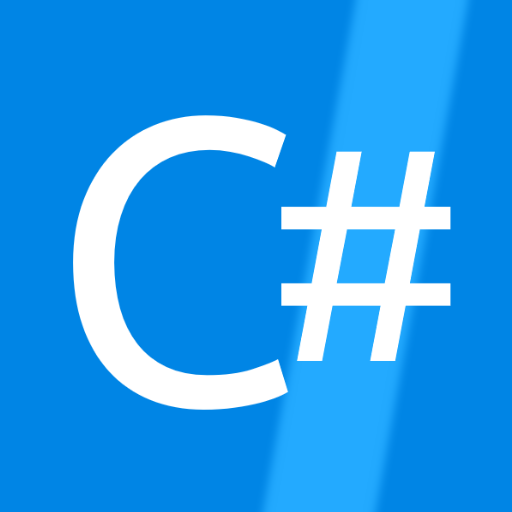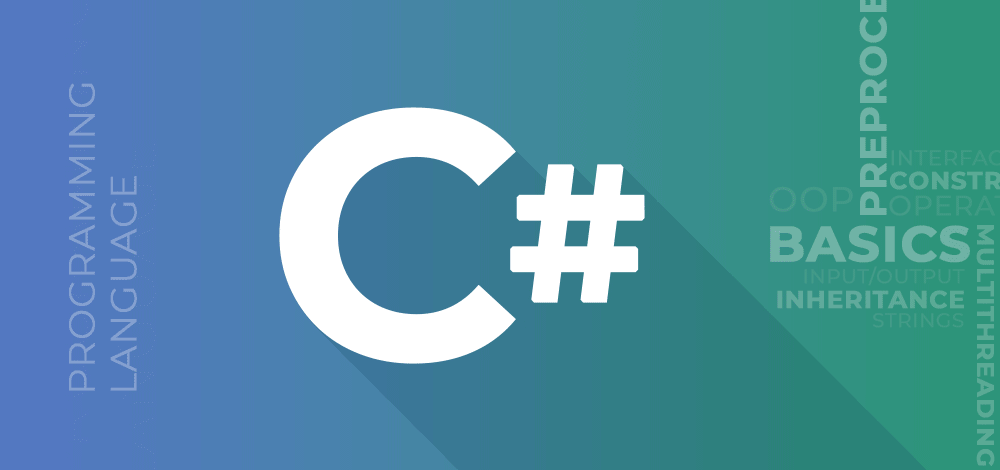The key to writing C# code well is maintainability and testability. Reasonably divide responsibilities, follow the single responsibility principle (SRP), and take data access, business logic and request processing by Repository, Service and Controller respectively to improve structural clarity and testing efficiency. Multi-purpose interface and dependency injection (DI) facilitate replacement implementation, extension of functions and simulation testing. Unit testing should isolate external dependencies and use Mock tools to verify logic to ensure fast and stable execution. Standardize naming and splitting small functions to improve readability and maintenance efficiency. Adhering to the principles of clear structure, clear responsibilities and test-friendly can significantly improve development efficiency and code quality.

Writing C# code well is not just "just run". What really tests the level is whether the code is easy to maintain and test. Especially in team collaboration and long-term projects, these two points directly affect development efficiency and product quality. Let’s talk about how to do it from a few practical perspectives.

Divide responsibilities reasonably and don't let categories be too "tired"
A type does too many things, and it will be like peeling off a cocoon in the later stage, which will move the whole body. Try to follow the Single Responsibility Principle (SRP) and each class does only one thing, or deals with a highly relevant set of logic.

For example, data access and business logic should be separated. If you connect both the database and do calculations in a class, it will be troublesome to change the database or adjust the algorithm in the future. Use the Repository mode to extract data operations and process business logic in conjunction with the Service class, the structure is clearer and easier to simulate and test.
Common practices:

- Put database operations in Repository
- Leave the business logic to the Service class
- Controller is only responsible for receiving requests and returning results
After this layering, you only need to mock the data layer when testing, and don’t really connect to the database.
Use multiple interfaces, less dependency on specific implementations
The interface is not for showing off skills, but for making the code more flexible. With dependency injection (DI) and interface abstraction, you can easily replace different implementations, which is especially useful for unit testing.
For example: you have an email service that sends emails. If other classes directly new it, it will be difficult to replace it with Mock or Fake implementations for testing. But if you define an IEmailService interface and other classes rely only on this interface, then you can pass in a fake implementation when testing without actually sending emails.
The benefits are more than testing:
- Easier to expand new features (such as adding text messages)
- Reduce coupling between modules
- Convenient integration testing and simulation testing
So, think more when writing code: "Can this function change in the future?" If the answer is yes, it is worth abstracting into an interface.
Unit testing should be simple, don't be dragged down by the environment
It is a good habit to write some tests after writing the code. But many people start to connect to the database and adjust external services as they write. As a result, the test runs slowly, and it is easy to fail - it is not that there is a problem with the code, but that the environment is unstable.
The correct way is: isolate external dependencies and focus on logical verification .
For example, you have a method to calculate discounts based on user level, so don’t check the database to get user information. Instead, you should pass the level as a parameter, or inject an IUserProvider interface through the constructor, and pass a fake implementation in during testing.
suggestion:
- Use the mock tool of Moq or xUnit to simulate dependencies
- Avoid accessing real databases or networks in unit tests
- Test naming should make sense, such as
CalculateDiscount_WhenLevelIsVip_Returns10Percent
This way your tests can be executed quickly and are stable and reliable.
Naming norms and small functions, read like sentences
Many codes are difficult to read, not because of the complex logic, but because of the messy variable names and too long functions. Don't be afraid of decomposing functions. A small function only does one small thing, which is easier to understand.
For example, this paragraph:
if (user != null && user.IsActive && user.Role == "Admin")
Can be encapsulated into:
if (UserHelper.IsEligibleForAccess(user))
You can tell at a glance that it is judging whether the user has permissions. The readability is improved and it is much more convenient to maintain.
In addition, the naming should be consistent with the style, such as:
- PascalCase
- The interface name begins with I
- Private fields begin with underscore
These details look small, but are very critical in multi-person collaboration.
Basically that's it. Writing maintainable and testable C# code does not rely on any advanced skills. The key is to have clear structure, clear responsibilities, and test-friendly. If you stick to these directions, you will find that changing bugs and adding functions will be much easier over time.
The above is the detailed content of Writing Maintainable and Testable C# Code. For more information, please follow other related articles on the PHP Chinese website!

Hot AI Tools

Undress AI Tool
Undress images for free

Undresser.AI Undress
AI-powered app for creating realistic nude photos

AI Clothes Remover
Online AI tool for removing clothes from photos.

Clothoff.io
AI clothes remover

Video Face Swap
Swap faces in any video effortlessly with our completely free AI face swap tool!

Hot Article

Hot Tools

Notepad++7.3.1
Easy-to-use and free code editor

SublimeText3 Chinese version
Chinese version, very easy to use

Zend Studio 13.0.1
Powerful PHP integrated development environment

Dreamweaver CS6
Visual web development tools

SublimeText3 Mac version
God-level code editing software (SublimeText3)

Hot Topics
 Random Number Generator in C#
Sep 03, 2024 pm 03:34 PM
Random Number Generator in C#
Sep 03, 2024 pm 03:34 PM
Guide to Random Number Generator in C#. Here we discuss how?Random Number Generator work, concept of pseudo-random and secure numbers.
 The difference between multithreading and asynchronous c#
Apr 03, 2025 pm 02:57 PM
The difference between multithreading and asynchronous c#
Apr 03, 2025 pm 02:57 PM
The difference between multithreading and asynchronous is that multithreading executes multiple threads at the same time, while asynchronously performs operations without blocking the current thread. Multithreading is used for compute-intensive tasks, while asynchronously is used for user interaction. The advantage of multi-threading is to improve computing performance, while the advantage of asynchronous is to not block UI threads. Choosing multithreading or asynchronous depends on the nature of the task: Computation-intensive tasks use multithreading, tasks that interact with external resources and need to keep UI responsiveness use asynchronous.
 C# vs. C : History, Evolution, and Future Prospects
Apr 19, 2025 am 12:07 AM
C# vs. C : History, Evolution, and Future Prospects
Apr 19, 2025 am 12:07 AM
The history and evolution of C# and C are unique, and the future prospects are also different. 1.C was invented by BjarneStroustrup in 1983 to introduce object-oriented programming into the C language. Its evolution process includes multiple standardizations, such as C 11 introducing auto keywords and lambda expressions, C 20 introducing concepts and coroutines, and will focus on performance and system-level programming in the future. 2.C# was released by Microsoft in 2000. Combining the advantages of C and Java, its evolution focuses on simplicity and productivity. For example, C#2.0 introduced generics and C#5.0 introduced asynchronous programming, which will focus on developers' productivity and cloud computing in the future.
 Prime Numbers in C#
Sep 03, 2024 pm 03:35 PM
Prime Numbers in C#
Sep 03, 2024 pm 03:35 PM
Guide to Prime Numbers in C#. Here we discuss the introduction and examples of prime numbers in c# along with code implementation.
 How to change the format of xml
Apr 03, 2025 am 08:42 AM
How to change the format of xml
Apr 03, 2025 am 08:42 AM
There are several ways to modify XML formats: manually editing with a text editor such as Notepad; automatically formatting with online or desktop XML formatting tools such as XMLbeautifier; define conversion rules using XML conversion tools such as XSLT; or parse and operate using programming languages ??such as Python. Be careful when modifying and back up the original files.
 How to convert xml to json
Apr 03, 2025 am 09:09 AM
How to convert xml to json
Apr 03, 2025 am 09:09 AM
Methods to convert XML to JSON include: writing scripts or programs in programming languages ??(such as Python, Java, C#) to convert; pasting or uploading XML data using online tools (such as XML to JSON, Gojko's XML converter, XML online tools) and selecting JSON format output; performing conversion tasks using XML to JSON converters (such as Oxygen XML Editor, Stylus Studio, Altova XMLSpy); converting XML to JSON using XSLT stylesheets; using data integration tools (such as Informatic
 What is c# multithreading programming? C# multithreading programming uses c# multithreading programming
Apr 03, 2025 pm 02:45 PM
What is c# multithreading programming? C# multithreading programming uses c# multithreading programming
Apr 03, 2025 pm 02:45 PM
C# multi-threaded programming is a technology that allows programs to perform multiple tasks simultaneously. It can improve program efficiency by improving performance, improving responsiveness and implementing parallel processing. While the Thread class provides a way to create threads directly, advanced tools such as Task and async/await can provide safer asynchronous operations and a cleaner code structure. Common challenges in multithreaded programming include deadlocks, race conditions, and resource leakage, which require careful design of threading models and the use of appropriate synchronization mechanisms to avoid these problems.
 How to convert xml into word
Apr 03, 2025 am 08:15 AM
How to convert xml into word
Apr 03, 2025 am 08:15 AM
There are three ways to convert XML to Word: use Microsoft Word, use an XML converter, or use a programming language.






